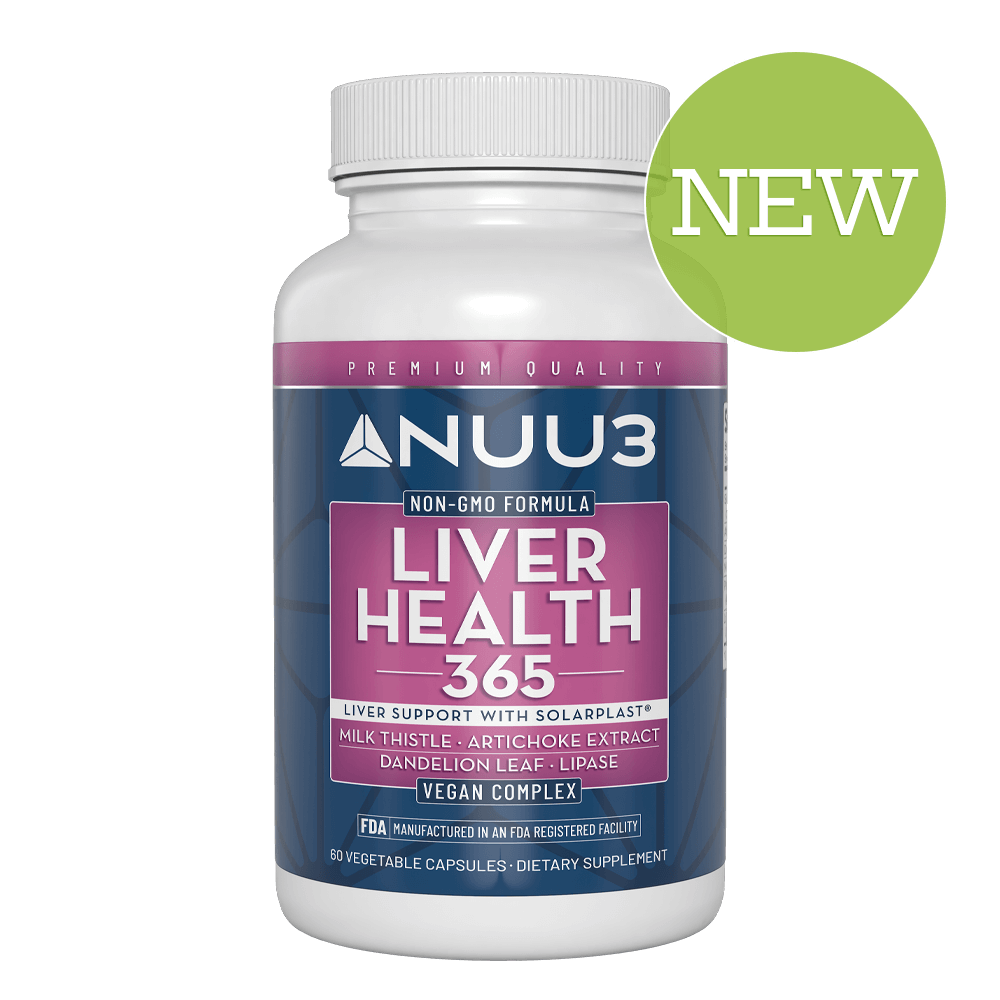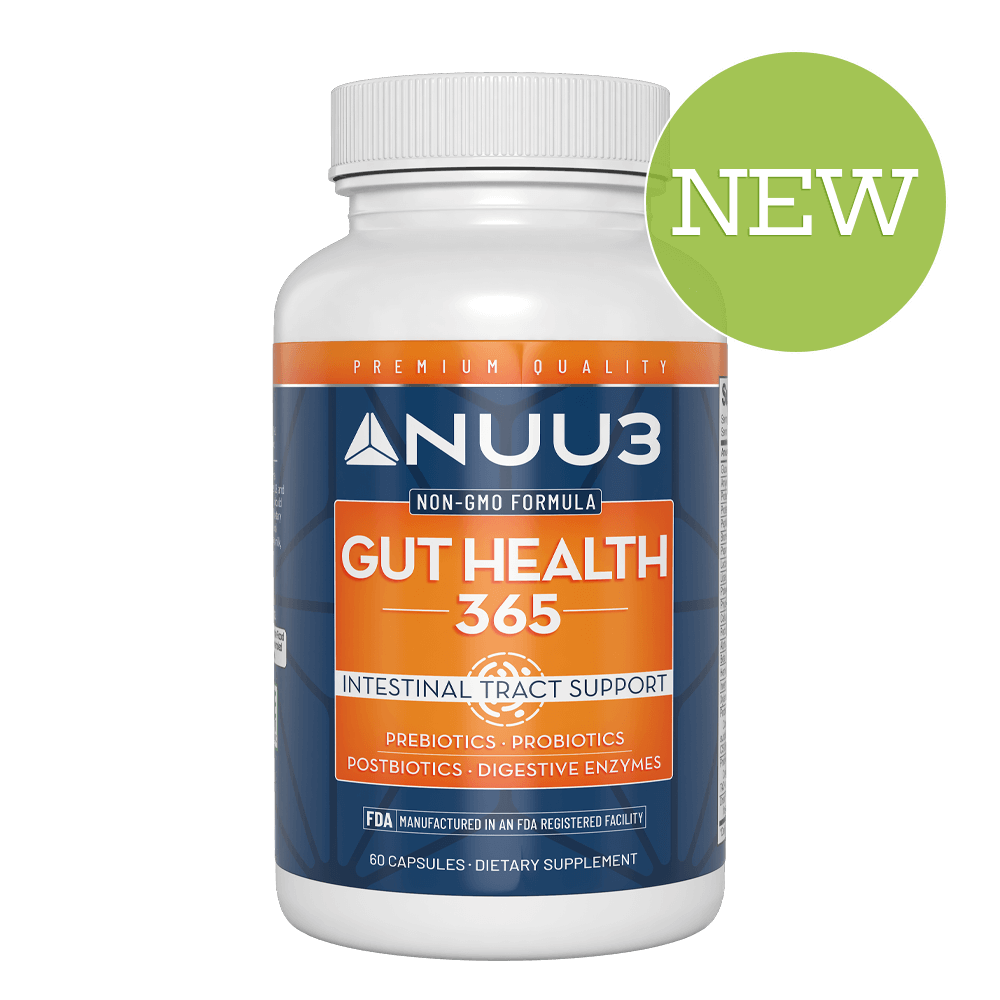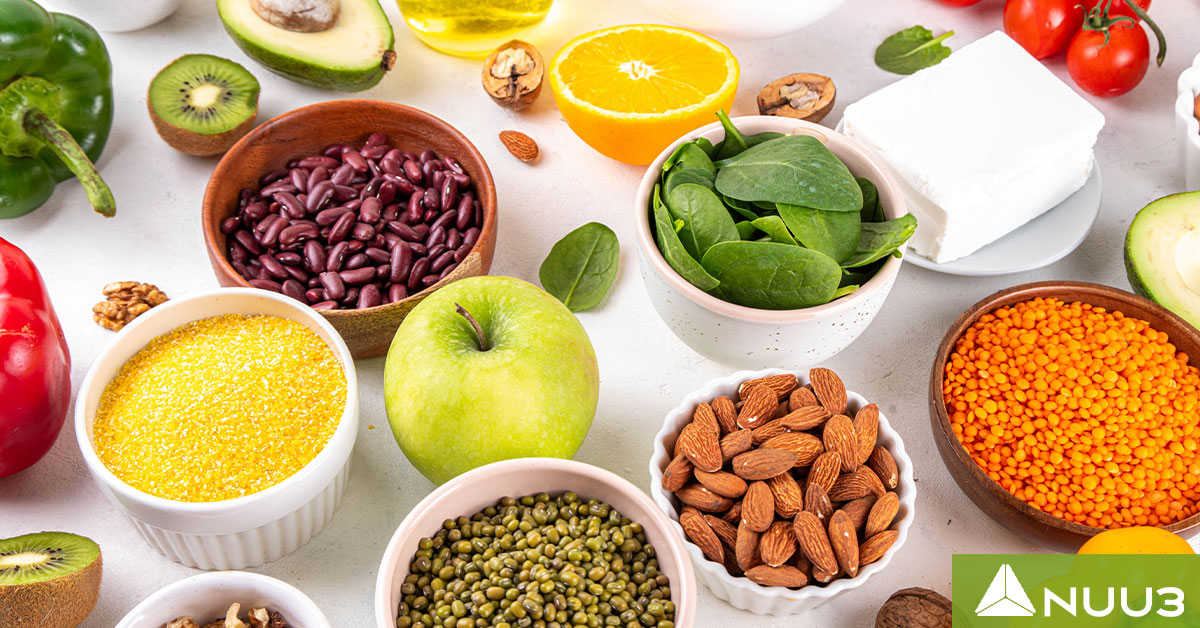If your doctor tells you that you’ve got high cholesterol, then fear might strike - it is, after all, a risk factor for heart problems. Sometimes, your doctor may recommend making some lifestyle changes to see if that helps to bring your cholesterol back down. One of the most important things to keep in mind is the kind of diet that you will adopt. A low-cholesterol diet plan can help balance things out and reduce your risk of these diseases. However, it is worth noting that there are foods to include and avoid. That’s what we’ll be considering in this article.
Overview of Cholesterol
Cholesterol is a substance that’s present in cells throughout your body. It’s a substance that has a fatty texture, sometimes described as waxy as well. While cholesterol often gets a bad rap, it’s actually an important substance.
Your body needs cholesterol to help it build cells and make hormones. Plus, cholesterol is involved in the production of vitamin D. The metabolic system uses this substance to help digest the foods you eat.
Your liver produces enough cholesterol to support your body to perform all these functions. Therefore, it’s critical to be careful with your diet and watch how much cholesterol you get from food to maintain a healthy cholesterol level.
Common Causes of High Cholesterol
When your doctor says you have high cholesterol, it means too much of this fatty compound is in your bloodstream. There are different things that can contribute to high cholesterol, such as the following:
-
Dietary habits - what you eat matters when it comes to high cholesterol. Eating fatty foods and constantly deep frying your food are things that cause your cholesterol levels to increase.
-
There are studies that have linked[1] smoking to high cholesterol levels, so that’s also something to consider.
-
Alcohol can also have an impact on your cholesterol levels. While a drink now and then won’t necessarily hurt, it’s important to watch how much alcohol you consume.
-
If you are overweight or obese, your risk of high cholesterol also increases. Plus, excess body fat also has a role to play in your risk of developing heart disease.
-
Lack of exercise is another contributing factor to high cholesterol.
How can a low cholesterol diet help health conditions
A low-cholesterol diet will help reduce the LDL cholesterol in your body. Since your liver can make enough cholesterol to support cell and hormone production and other functions where the substance is needed, this type of diet will reduce how much extra cholesterol you get through your diet.
Furthermore, focusing on reducing LDL cholesterol and leaning more on foods that may increase HDL, which is a good kind of cholesterol, helps to keep your blood clean.
Due to these effects, a low-cholesterol diet can effectively reduce your risk of these conditions:
- Heart disease
- Heart attack
- Stroke
- Chronic kidney disease
- Angina
- High blood pressure
The role of diet in reducing cholesterol
There are two ways in which your diet can help reduce your cholesterol levels. So, we need to look at both of these factors to make sure you have a good understanding.
First, your diet can reduce how much LDL cholesterol you get into your body. If you follow a healthy diet, it can impact your total cholesterol.
Second, your diet can also help you introduce more HDL cholesterol to your blood. If you have high HDL cholesterol, it can help reduce the amount of LDL circulating in your bloodstream, which is a good thing.
Low cholesterol diet plan: Foods to eat and avoid
You might wonder what exactly a low cholesterol diet plan looks like - and that’s what we want to focus on in this section.
Foods to fill up on
Let’s take a look at what foods you should form you should include in your diet. These should be the focus foods of your low cholesterol diet plan.
1. Fruits: Apples, oranges, bananas, pears, peaches, berries
While some fruits have high sugar content, they also offer minerals and vitamins. Plus, there are also many fruits with antioxidants as well as fiber. These compounds contribute to a healthy body and can reduce your cholesterol levels.
2. Vegetables: Broccoli, potatoes, sweet potatoes, green beans, peas, cauliflower, onions, squash
The fiber content in vegetables can do wonders for your cholesterol levels. In one study[2], researchers found that soluble fiber can significantly reduce bad cholesterol (LDL) and contribute to an overall better lipid profile. In fact, when you ask about vitamins to lower cholesterol, you’ll often see that these supplements use plant-based ingredients - including extracts from vegetables.
3. Legumes: Black beans, chickpeas, kidney beans, lentils
Legumes give you access to a couple of helpful nutrients like iron and protein. They are also a good source of fiber. As we’ve discussed, fiber is a good choice to include in your diet when you want to reduce your cholesterol levels.
4. Nuts: Pistachios, cashews, almonds, walnuts
While nuts contain fat, it’s not the kind that will push your cholesterol levels up. Some studies have looked at the impact of nuts on cholesterol. In one particular study[3], researchers found a selection of nuts (pistachios, cashews, almonds, walnuts) helps reduce LDL and total cholesterol.
5. Whole grains: Quinoa, barley, oats, popcorn
Whole grains are readily available on the market and are an amazing addition to your diet. A lot of them contain no cholesterol at all. They are healthy foods and are a good source of fiber.
6. Healthy fats: Olive oil, avocados, nut butter, olives
There are good and bad fats. Good fats, like nut butter and olive oil, can help boost your good cholesterol known as HDL. This, in turn, can help reduce your LDL.
7. Lean proteins: Lean chicken, turkey, fish, eggs
You shouldn’t skip out on protein. It’s an important part of any diet and helps to make you feel full. Plus, protein is great for boosting your performance during exercise, essentially making weight management easier.
Foods to eat in moderation
Some foods are okay to eat when you’re on a low cholesterol diet plan. However, you need to be mindful of how frequently you consume them. Let’s look at the foods that you can eat in moderation.
1. Red meat
Red meat is generally not a good option if you have high cholesterol. However, eating some red meat occasionally is okay. Just try to opt for lean cuts of red meat.
2. Full-fat dairy
It’s also important to be mindful of how much full-fat dairy products you take. This is because the high fat content can cause your total cholesterol levels to increase.
3. Dairy desserts
You should also go easy on those delicious dairy desserts as they’re often made with full-fat dairy products.
4. Sodas
This one might come as a bit of a surprise, but these sugary drinks can cause your HDL cholesterol levels to decline[4]. Plus, there’s evidence that too much soda is bad for your heart as well.
5. Candy
Yes, you can have some candy, but in moderation. Always be mindful that foods that are high in sugar can impact your cholesterol.
Foods to avoid
Now that we’ve looked at the food you can eat and options you can have in moderation, let’s consider some of the foods that you should avoid completely when you want to follow a low cholesterol diet plan.
1. Fast food
While it’s convenient to grab some food on the go when you get off work, fast foods are packed with saturated and trans fats which can cause your cholesterol levels to rise.
2. Pastries
Pastries are another thing that you should avoid when you’ve got high cholesterol. They’re filled with much more fat than you might realize.
3. Margarine and shortening
Even though it’s convenient to use margarine and shortening, especially when cooking, these foods are bad for you. They’re loaded with preservatives and high in fats.
4. Refrigerated dough
Refrigerated dough might be tempting as you don’t have to mix ingredients, but the ingredients used to make these foods increase your cholesterol levels.
5. Non-dairy coffee creamer
Finally, non-dairy coffee creamer. These coffee creamers often have ingredients that are bad for your cholesterol levels.
Strategies to help you manage your cholesterol
Now that we’ve explored what a low cholesterol diet plan might look like. You must consider both the foods you should fill up on and those that you need to avoid. This will help you attain long-term results if you make permanent changes to your diet.
However, you might still want to ask “How fast can you lower cholesterol? It can take some time. But, with a more comprehensive strategy, you can work on lowering your cholesterol faster.
-
Physical activity: Frequent exercise can do a lot for your cholesterol levels. Research has found[5] that exercises at a moderate intensity level help to increase HDL cholesterol in your body. You can aim for about 20 to 30 minutes of exercise five days a week.
-
Stress management: People often don’t realize how much of an impact stress can have on their health. If you’re constantly stressed, then you have a consistent release of cortisol and other stress hormones. These things can contribute to inflammation and even affect your cholesterol. Stress can also lead to poor dietary choices which can further cause your cholesterol to rise. Stress management strategies like yoga and meditation can help.
-
Quit smoking: If you’re a smoker, consider giving up. There is evidence that smoking directly causes an increase in cholesterol. Plus, if you smoke, it causes damage to your blood vessels and arteries, too.
-
Weight management: Overweight people are much more likely to find that they have high cholesterol. By managing your weight more effectively, you can reduce your risk. Exercise and a healthy diet offer a good start for weight management. If you’re struggling, consider taking a supplement like NUU3 Apple Cider Vinegar Gummies. These gummies taste great and give you a concentrated form of apple cider vinegar, which can help speed up your metabolism and make you feel fuller.
-
Get enough quality sleep: Don’t overlook the role of sleep. When you’re asleep, your body goes through several processes. Sleep deficiency, on the other hand, has been linked to a higher risk of diabetes, heart problems, and obesity.
-
Medication: If these methods don’t seem to work, you could consider opting for medication. Several drugs may help reduce your LDL cholesterol levels.
Many people also turn to natural options to manage their cholesterol, such as the NUU3 Green pura. This supplement offers a natural way to increase antioxidant activity in your body, which reduces free radical damage. It’s a green tea supplement that also helps to boost your energy levels, improve heart health, and can help improve cholesterol over time.
Some supplements give you access to a broad range of plant-based chemicals and nutrients. An option like NUU3 Nature’s Superfuel can boost your immune system, give you more energy, make weight loss easier, and more. The effects of this supplement, such as more energy, make it easier to be more active - and that can go a long way in improving the balance of your cholesterol.
FAQs
How much cholesterol should I eat?
Healthy people should limit their cholesterol intake to a maximum of 300mg per day. For those with high risks for heart disease, it’s crucial to reduce the limit to 200mg.
Which diet is best to lower cholesterol?
There are a couple of diets that can help with cholesterol. It’s always recommended to opt for a “heart-healthy” diet which focuses on regulating how much cholesterol you eat.
What are the worst foods for high cholesterol?
Foods that are high in saturated and trans fats are some of the worst you can eat when you’ve got high cholesterol. These include deep-fried foods, full-fat dairy, and tropical oils.
Conclusion
Cholesterol is something that can cause your arteries to get clogged. But not all cholesterol is bad. Between the two main types of cholesterol, your LDL, the bad cholesterol, can increase your risk of heart disease, stroke, and heart attacks. Luckily, there are ways to bring down your cholesterol levels. A low cholesterol diet plan combined with some exercises and weight management should give you a good head start to becoming healthy.
References
1] ↑https://www.ncbi.nlm.nih.gov/pmc/articles/PMC10011683/
2] ↑https://www.mayoclinic.org/diseases-conditions/high-blood-cholesterol/in-depth/reduce-cholesterol/art-20045935
3] ↑https://www.ncbi.nlm.nih.gov/pmc/articles/PMC10201678
4] ↑https://pubmed.ncbi.nlm.nih.gov/36771303
5] ↑https://www.ncbi.nlm.nih.gov/pmc/articles/PMC7335580/











